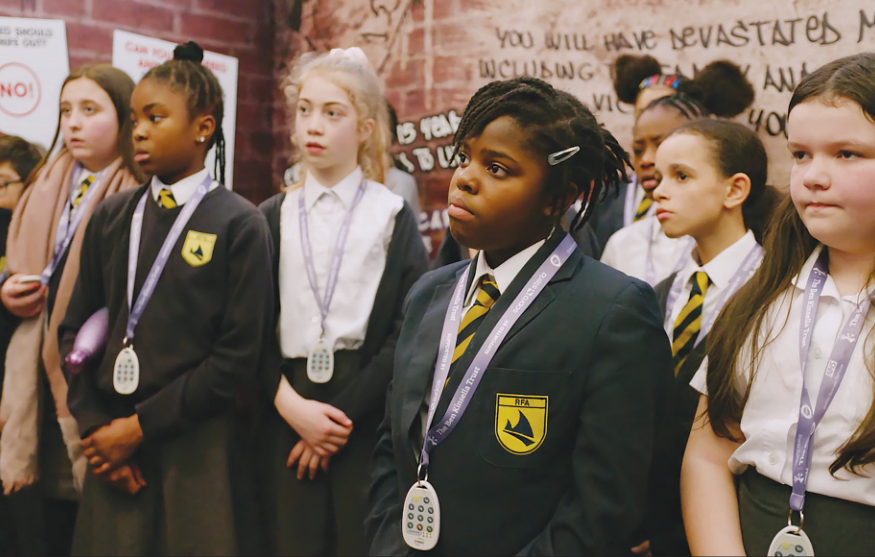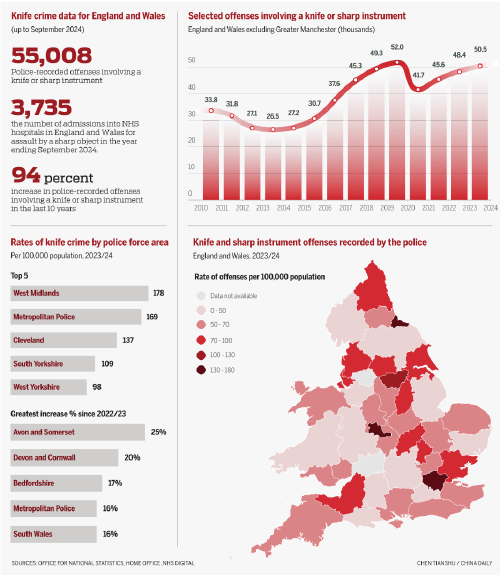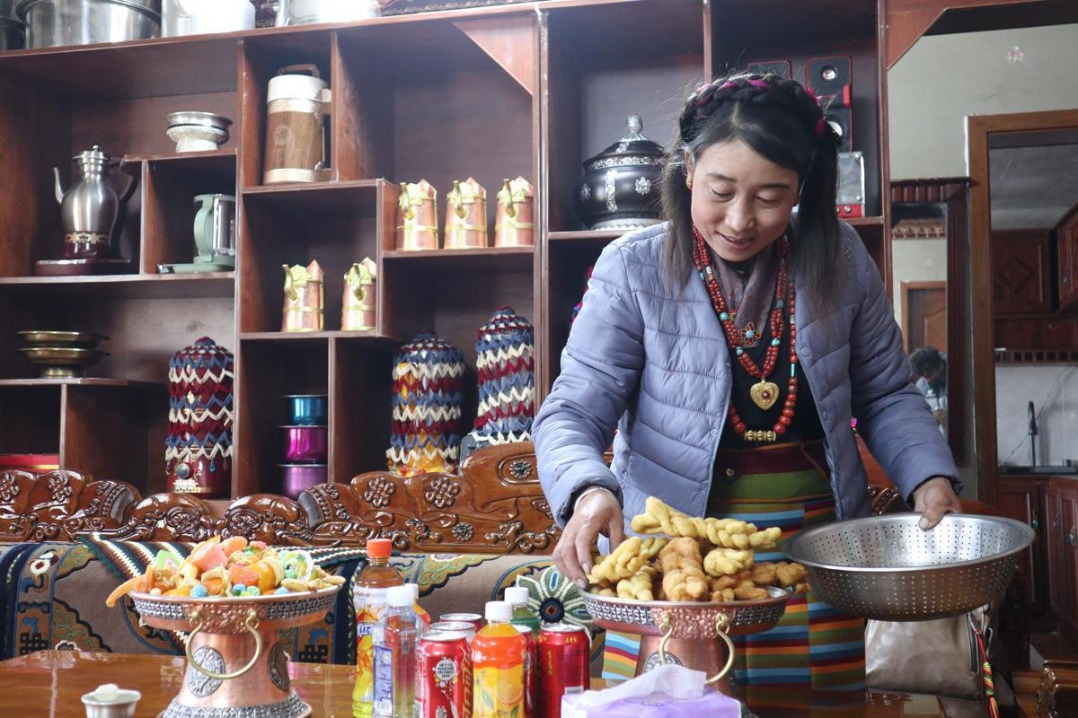Getting to the heart of England's knife crime
Activists, educators aim to stem tide of fear and knife-related violence that is fueling a national crisis

Offering hope
Although the challenge facing anti-knife crime groups is daunting, results achieved in the Scottish city of Glasgow, once dubbed the murder capital of the Europe because of its violent reputation, offer hope.
Between 2006 and 2011, knife crime killed 15 children and teenagers in Scotland's largest city, but between April 2011 and April 2016, there were no such deaths.
This sharp decline, mirrored across the whole of Scotland, came after the establishment of the Scottish Violence Reduction Unit, or VRU, which treated the issue as a public health matter, identifying and treating the causes of crime before it happens. VRU's motto is "violence is preventable, not inevitable", a message about the possibility of a violence-free future that found a willing audience, and drew in people who may not previously have worked together, for a concerted, joined-up policy.

VRU head Jimmy Paul told China Daily it was a facilitator for the hard work of many people and groups.
"Often, people look to us as having created this solution, but we were just a catalyst working with others to help make change," he explained. "There are a number of risk factors that present challenges, such as poverty, adverse childhood experience, the care system, exposure to addiction and a lack of role models. We focus on protective factors to give young people the best chance of growing up making healthy decisions; basically, a sense of hope."
Young people have, he said, helped lead the way and these days, people involved in knife crime in Scotland are more likely to be older.
"In the nine years from 2005 to 2014, there was a 60-percent reduction in homicides in Glasgow, and 52 percent across the rest of Scotland, and in the 20 years since the unit was founded, across all of Scotland, there's been a 58-percent fall."
Similar units have been set up across the UK, but steering vulnerable young people away from the world of knives is an endless task.
"In 2022, we had no teenage murders in Croydon, there were none in 2024 and up to March this year, there have been none," said King.
"For me to see young people provided with opportunities and aspirational things, and to see them take these chances, that's my reward. When I see a couple of years with no murders, that tells me what we're doing is positive. People smiling and lives being turned around — that's when I know things are going well."

























